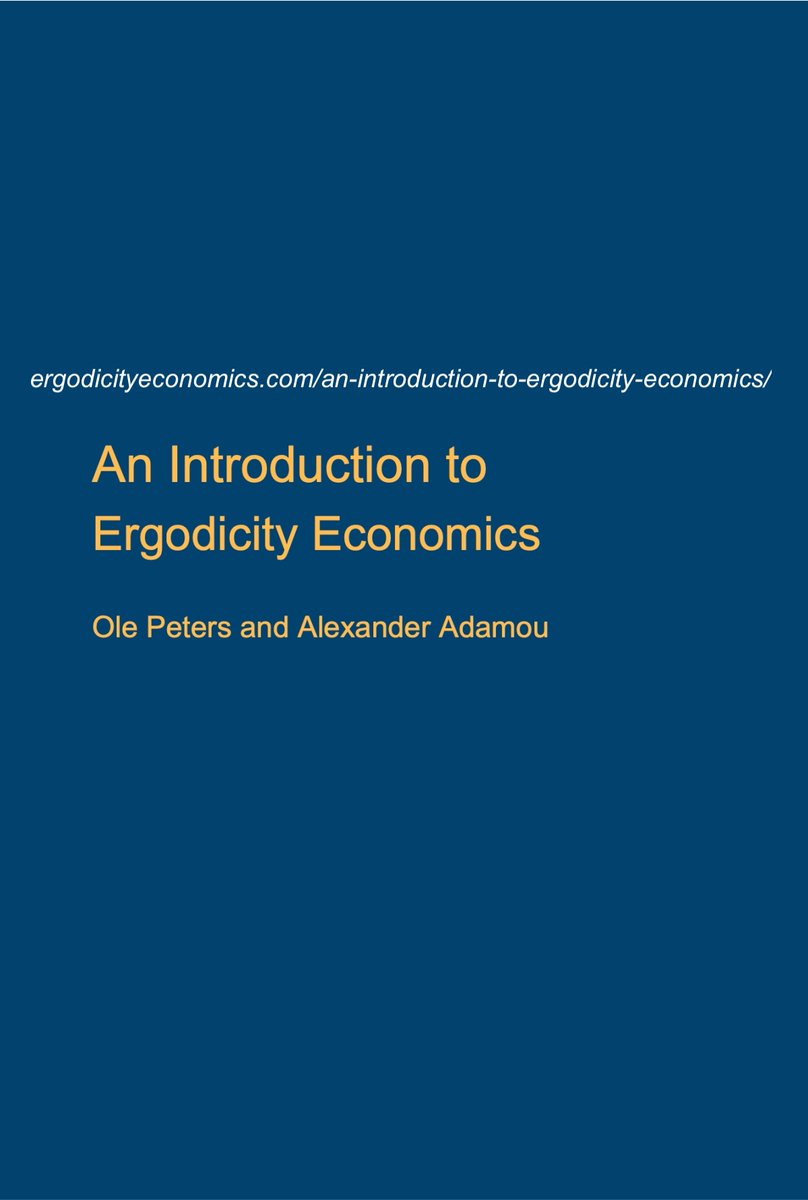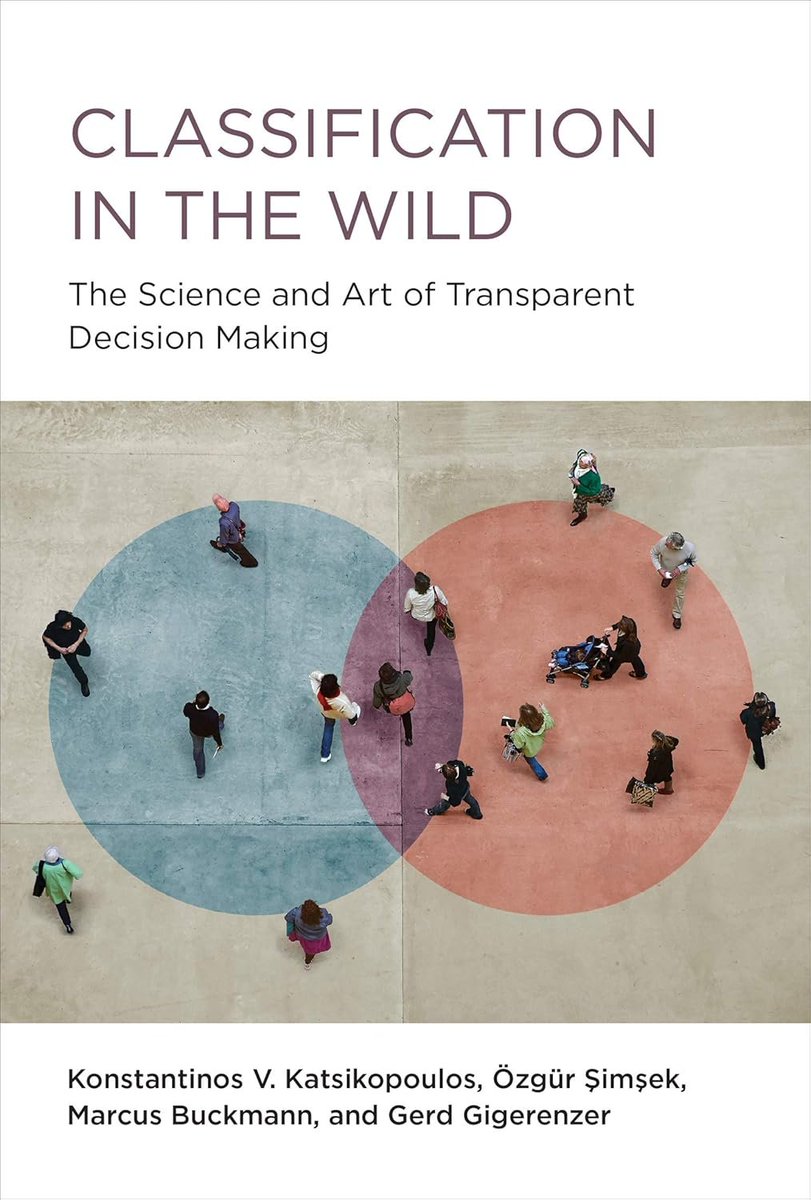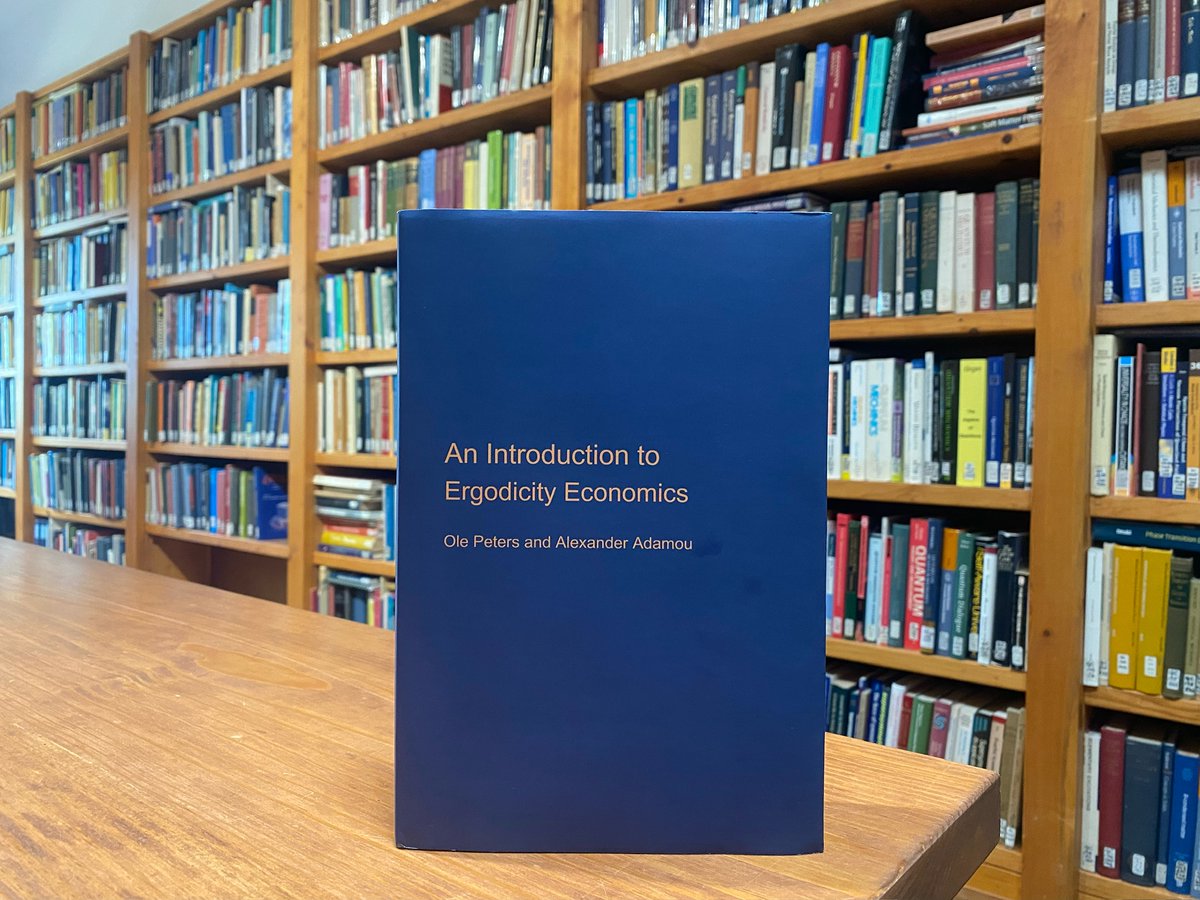
Ole Peters
@ole_b_peters
Physicist, Ergodicity Economics @LdnMathLab, @sfiscience. Textbook: https://ergodicityeconomics.com/publications/ Blog: http://ergodicityeconomics.com
1/thread🧵 Almost 20 years ago, I started thinking about the ergodicity problem in the context of economics. That turned out to be surprisingly fruitful, and now there's a book about it.

Kierkegaard, on the other hand, rarely disappoints.
"Were I to wish for anything I would not wish for wealth and power, but for the passion of the possible, that eye which everywhere, ever young, ever burning, sees possibility. Pleasure disappoints, not possibility." Kierkegaard quoted in @FT
I’m a little bit jealous. I will never be able to receive this book in the mail, unpack it, open it, be dazzled by its colors, smell it, and read it for the first time without knowing what’s inside. What a treat!
Finally arrived; it’s going to be a busy weekend 😁 P.S. I wish I had asked for a signed copy @ole_b_peters @alex_adamou
I just skimmed @ole_b_peters’ Ergodicity Economics textbook, and it already feels like a much clearer way of understanding economic rationality. The core idea: model people as maximizing the average growth rate of their wealth over time, rather than a utility function of wealth.
We call such "utility functions" ergodicity transformations. The depth of this way of thinking can be gleaned by realizing that these transformations turn a growth process into a clock. They can't be utility functions because they're environment-dependent, not person-dependent.
That is: the utility function that leads to the most consistent growth is different in different environments. Ergodicity economics then says: so let’s work with the (empirically validated) assumption that people are trying to get consistent growth not utility. Very elegant!
Happening now!
Ergodicity Economics Seminar coming up: tomorrow 16 July, at 2pm London time. (Not 15 July as I foolishly thought until recently.) With Ozgur Simsek, on Fast and Frugal Classifiers. This is ecological rationality meeting ergodicity economics. Come one, come all!…
The use of mathematics in economics is not to "make sure something is correct" - that's an absurd idea. I can write fiction in English or maths. It's to force ourselves to be clear and explicit about what we're trying to say. It helps us see the implications of our thinking.
For those of you about to order a copy. An Introduction to Ergodicity Economics is available on amazon and other online outlets, and you may like the convenience. But prices there have gone up since publication, and it's cheapest to order directly from us.

Isn’t it amazing that this is not the explanation for the existence of insurance given in orthodox economics? ‘Psychology, preference, irrational mumble mumble’ is the official line. Keep ignoring ergodicity economics at your own (and everyone else’s) peril.
"Resolución fundamental del problema del seguro: ambas partes firmarán un contrato de seguro si al hacerlo se incrementa la tasa de crecimiento ergódico promedio en el tiempo tanto de la riqueza del vendedor como de la riqueza del comprador." @ole_b_peters ↓:
As a rule, a chatbot in customer service is as helpful as spitting at your customer. I have not seen a single example where this has not been catastrophically bad. Perhaps because AI is usually a disaster when used as an automation. It works well as a collaborative tool.
Ergodicity Economics Seminar coming up: tomorrow 16 July, at 2pm London time. (Not 15 July as I foolishly thought until recently.) With Ozgur Simsek, on Fast and Frugal Classifiers. This is ecological rationality meeting ergodicity economics. Come one, come all!…

I keep telling people about this book, so let me mention I'm not alone in my enjoyment. Literature Nobel Laureate J M Coetzee: "The chapter on the lonely Mrs Gold is a triumph." ...and he's right. It is.
When I read this sentence, I knew I wouldn’t be able to put the book down. ‘Brief hours and weeks.’
When I read this sentence, I knew I wouldn’t be able to put the book down. ‘Brief hours and weeks.’
There are three kinds of people. @EmanuelDerman
Having published "An Introduction to Ergodicity Economics," I no longer feel the responsibility personally to engage so much. If you want to understand what ergodicity is and why it matters, the book is a wonderful resource. If you don't want to understand, I can't help you.
Log utility. He discovered log utility-- a strong default in applied economics.
Ergodicity heuristic.
I’m a simple guy. I see ergodicity. I re-post.
The gift that keeps on giving: my infamous coin toss. One optimistic line: "economists call it the ergodicity problem." Perhaps one day it will be true. So far, out of the 500,000 economists on earth, only a handful understand what ergodicity is and why it matters.
x.com/i/article/1943…
Next week, 16 July, 2pm London time: Ergodicity economics seminar with Özgür Simşek. Fast and frugal classifiers. Sign up below and come along (all online). We're beginning to merge these heuristic techniques with EE. ergodicityeconomics.com/event/seminar-…
Now available at one of my all-time favorite places. A kind of homecoming for this little book. @sfiscience library. Many thanks for the photo!
